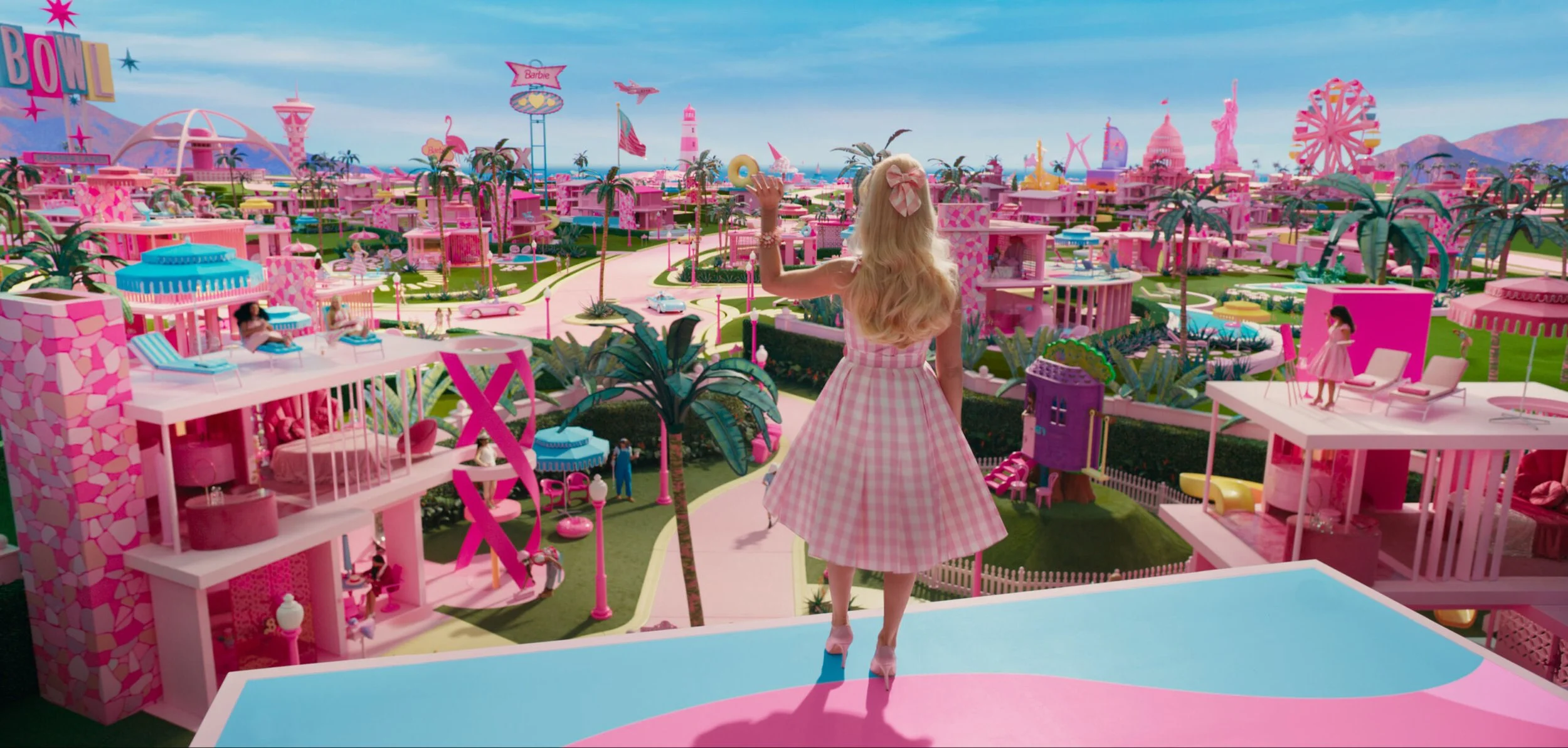Let’s Talk Horses: A “Barbie” Review
I’ll be the first to admit I’ve never played with a Barbie. Growing up, she just never piqued my interest, much preferring a G.I. Joe or a WWE action figure. I have a strong feeling that director Greta Gerwig (Frances Ha, Lady Bird) much preferred the former, but I can hardly imagine she played with them in the traditional sense. There’s not a single aspect of this film that isn’t bold. It is colorful. It is spectacular. The dialogue is fluid and engaging. The music, although its timing may seem sporadic at certain points, is tonally perfect and certainly doesn’t detract from the very real emotions and hard discussions guiding this adventurous taking on the coming-of-age story.
By paralleling one of the most transcendental opening scenes in cinema history (Strauss’s Also sprach Zarathustra ring a bell, anyone?), Gerwig sets her timeless intentions early. This is not a film about now. This is not a film about the past. This is a film that lies beyond the realm of time and flirts with some rather serious philosophical questions. Like what is it that Barbie is really doing in between the time we pick her up inside and put her down outside instead of walking her down the stairs and out the door? Maybe, if a date and time are needed to understand this film, it could be those few moments between living out our lives and living with ourselves. Calling Barbie’s world a utopia simply because she doesn’t have to walk down the stairs may be a bit of an over-exaggeration, but that is in fact the very real world she lives in.
Truly, every aspect of this film is over-the-top. It's a film that is conscious of itself and at times quite literally does this part of the job for itself, but it only adds to the casual moviegoer's experience and provokes more thought out of a potentially more critical audience. First and foremost, this movie is ineffective without the backdrop that Mattel’s original Barbie doll crafted for more than half a century. I will not claim to know the intentions of the doll's original creators, and am admittedly resistant to the idea that what Barbie has become is what Barbie was supposed to be, but I can firmly say that what Barbie is now is representative of concepts that reach way beyond girls playing with dolls. It could even be argued that the adoption of the Barbie doll as a societal icon was one of the foremost steps in sparking the initial discussion about feminism and what it truly means to be a woman. But what happened to that discussion? With a monologue pieced together with the help of longtime collaborator Noah Baumbach (Marriage Story, The Squid and the Whale) and delivered passionately by the one and only America Ferrera, the audience is directly told in the same over-the-top fashion that dictates the entire direction of this film. This was Ferrera’s character's moment. This was not delivered as a traditional speech. It doesn’t read like Shakespeare. If you will, it reads like the sporadic thoughts an ordinary person in a complex world may have to themselves while they’re walking down the stairs and out the door.
This film is not about the Barbie doll and it is not about the Barbie world. It is rather a self-aware critique of the discussion that came out of the development of this toy and it doesn’t pull any punches on itself or the audience, inherently upsetting the audience members getting punched. This is where we talk about horses. I can’t prove it, but I’m fairly certain that the number of horses on screen increases at an exponential rate over the course of the film between the two over-the-top full-blown dance numbers framing this film. It starts with Ken just learning about them briefly in the real world along with all the other traits that make up the patriarchy, such as the boys club mentality and the inability to show emotions in front of anyone. Yet, over the course of its runtime, more and more horses seem to appear, eventually playing on every screen throughout Ken’s patriarchal Barbieland. While horses are quite majestic beasts, it is not his simple affinity for the animal that makes Ken keep them around. They instead come to symbolize Ken’s newfound power that he now prides himself on as the oligarch of his possessions. Horses are simply representative of a certain type of masculinity that prides itself on its superficial qualities: being strong, being tough, and looking good while doing it. Personally, I believe this is where audiences become split on this film as certain viewers cannot divide the toxic from the masculinity. Masculinity is not inherently toxic, but the masculinity that Ken learned as an objective viewer of the real world was. The critique is not on every man as an individual, it is on the norms being perpetuated by certain men that overhaul the humanity of other individuals. Or, as I said, this is not a film about the Barbie doll and it is not about the Barbie world.
Ultimately, this is an exceptional addition to Gerwig’s emerging filmography and will resonate through the cinematic world beyond its blockbuster notoriety. It isn’t afraid to take risks, it isn’t afraid to shove reality in your face, and it isn’t a lighthearted take on a kid's toy. This is not a Barbie movie, this is a Greta Gerwig-created, Noah Baumbach-curated film starring Margot Robbie and Ryan Gosling and it should not be ignored.

